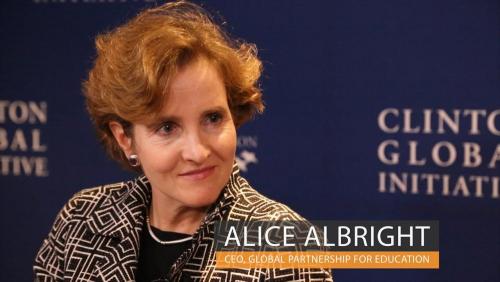
https://news.trust.org/item/20200501114530-f4su6/
The impact of COVID-19 on Africa’s education system has been swift, triggering an education emergency of unprecedented scale. All but one African country has closed schools to slow the spread of the disease.
Interrupted learning and economic shocks brought on by the pandemic will exacerbate inequalities and threaten the futures of the most vulnerable children. Girls, especially from the poorest families, are particularly at risk. With more than 400 million girls out of school due to the closures, Governments must act now to keep girls safe during this pandemic and ensure the doors to education remain open.
When girls are out of school, they are more vulnerable to child marriage, adolescent pregnancy and gender-based violence – all of which decrease their likelihood of continuing their education. Girls with greater vulnerabilities, such as refugees, the internally displaced, returnees, and those with disabilities, are at even higher risk.
If girls drop out at similar rates as during the Ebola crisis of 2014-2015 10 million secondary school-aged girls in low- and lower-middle income countries may never return, according to a projection by the Malala Fund. The pandemic could result in 2 million more cases of female genital mutilation and 13 million more child marriages over the next decade, according to estimates by the United Nations Population Fund, with long-term social and economic consequences.
Africa cannot afford to let this happen.
Crises exacerbate many of the factors that drive child marriage – including gender inequality, poverty, and lack of education. It is a vicious cycle: child marriage is both a cause and a consequence of poor educational attainment. Girls who marry young are more likely to drop out of school, and girls who are not in school or who have lower levels of education are more likely to marry young.
African Union (AU) member states must do everything in their power to ensure that girls remain educated, protected, and safe during this pandemic, and put gender at the center of pandemic responses.
In partnership with the Dr. Nyaradzayi Gumbonzvanda, AU’s Goodwill Ambassador to End Child Marriage and Action Aid Board Chair, the Forum for African Women Educationalists (FAWE), and Plan International, we’ve shared our recommendations with the African Union.
Girls and young women should be involved in assessing the needs of students, giving input on learning options, and monitoring progress.
Governments should invest in low-tech, affordable, and gender-responsive distance learning methods, such as radio and public television broadcasts. Comprehensive, age-appropriate sexuality education and sexual and reproductive health and rights information should continue through distance learning to prevent pregnancies. Educators should be trained about the threat of violence against girls and child marriage and refer at-risk girls to protective services.
Cash transfers or food rations should be provided to vulnerable students and their families. With parents losing livelihoods due to the pandemic, this will prevent girls from resorting to risky paid work to put food on the table.
Once schools can safely reopen, Governments should develop policies to encourage reenrollment. This includes removing barriers that keep girls out of school, such as bans on re-entry for pregnant girls and young mothers.
Of course, all these measures have a cost. As government resources are squeezed by both the cost of locking down their economies and longer-term economic impacts of the pandemic, there is a risk that education budgets will be cut.
This is not the time to balance budgets on the backs of schoolchildren. Financial support from international organizations, like the Global Partnership for Education’s COVID-19 emergency fund, can help. But it is essential that governments adopt fiscal policies that protect education spending in both the short- and long-term.
This is the time for concerted action to foster the next generation of skilled female talent and leadership. We’ll need them to fight the next global pandemic.
Right now, the focus is, rightly, on saving lives. But we must not forget that education is the key to saving girls’ lives and to helping them, their families, and their nations prosper in the recovery.










Add new comment